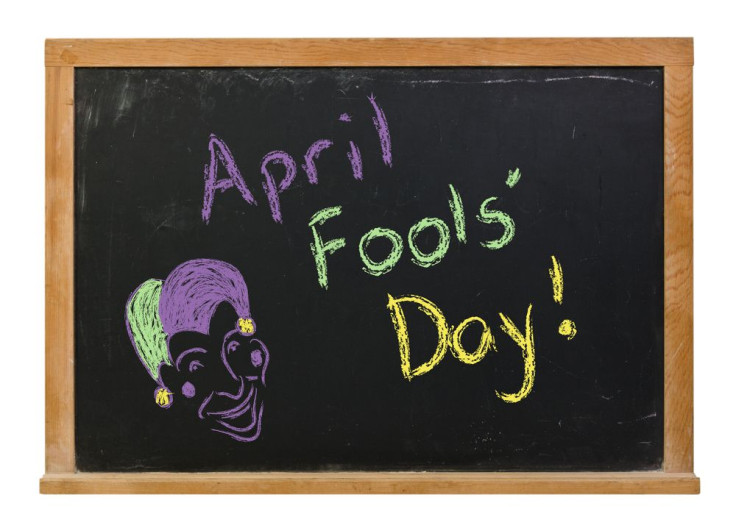
April Fools’ Day may be lots of fun for pranksters, but the light-hearted holiday leaves historians scratching their heads. April Fools’ Day is widely recognized as a day for tricks on April 1. While many revel in the moment to pull a hilarious gag on friends and family, some simply want to know where the tradition came from. The answer, surprisingly, is a bit of a mystery. Alex Boese, who serves as curator for the website Museum of Hoaxes, believes that the origin of April Fools’ Day is quite simple. Boese states that April Fools was most likely a "a hazing ritual" to welcome spring,” which seems to make sense, Spring Fever does make people get a bit loopy after being cooped up in their homes for a long, cold winter. Boese told USA Today that several cultures celebrated the beginning of the new season with "mischief, misbehavior or deception."
There are a few popular theories attempting to decipher the origins of April Fools’ Day. The most popular dates all the way back to the 1500s. Some experts claim that France changed its calendar in the 1500s in order to match the Roman calendar, which would make the New Year begin in January as opposed to the New Year beginning in early April. Although this change was in the 1500s. Therefore word was slow to meet the rural areas. Many people in the rural areas continued to follow the original French calendar and celebrated the New Year in April. The less informed rural dwellers, became known as "April fools." Even though this is the most widely regarded theory for the origin of the pranking holiday, Boese disagrees. He states that the French theory is completely wrong. “The day that the French celebrated the beginning of the year legally was Easter day, so it never really was associated with April first," he said.
Another expert in the field of pranks, jokes and April Fools’ is Joseph Boskin, a professor emeritus of American humor at Boston University, has a totally different theory for the origin of the fun, but he claims it’s all just a big joke -- on us. According to Associated Press, Boskin revealed that the holiday began in the 5th century, when King Constantine's jesters demanded one jester be allowed to be king for the day. Allegedly the King conceded and allowed his jester, the newly minted King Kugel to rule for a day, on that day, April 1, Kugel decreed that the day forever would be a day of absurdity. Despite these seemingly fun facts, and interesting history lesson, the story is totally made up! The Associated Press was less than pleased with Boskin’s tall tales, but the professor got a good laugh adding, "I thought I should have been complimented for a quacky, quirky story that was fitted to the occasion."
So the French calendar theory is wrong and so is the King Constantine and his jester story. Sso what is the true origin? April Fools’ Day most likely became a widely celebrated day due to age-old European spring festivals. Spring symbolizes renewal, at celebratory festivals pranks and “camouflaging one's identity were common.” So even though April Fools’ Day doesn’t have a grand history, it is still a day to be celebrated, a day for fun, and of course a day for pranks. So beware that you don’t become the “April fool” and happy pranking!
© 2025 Latin Times. All rights reserved. Do not reproduce without permission.





